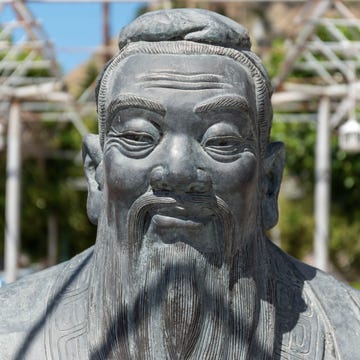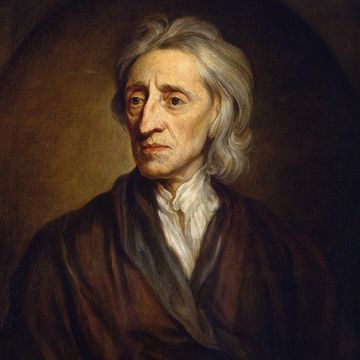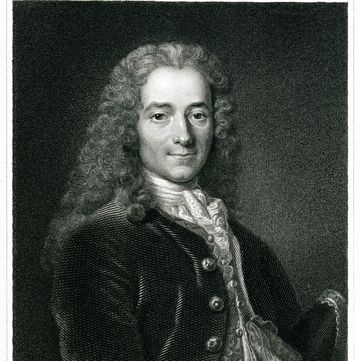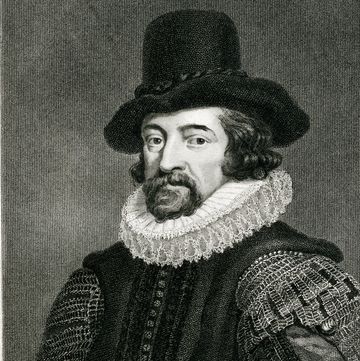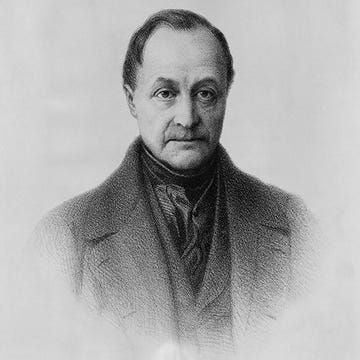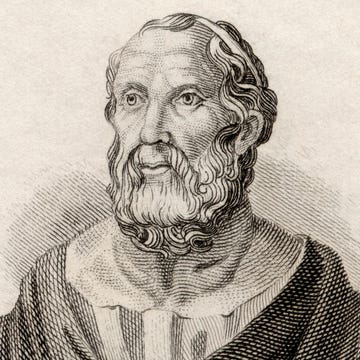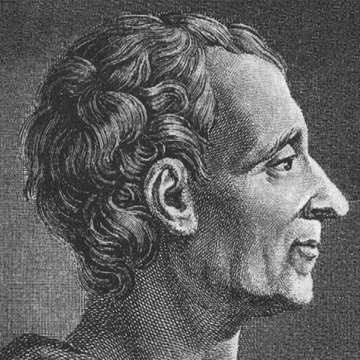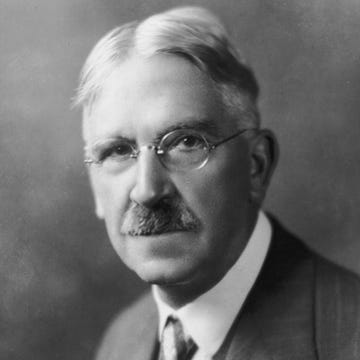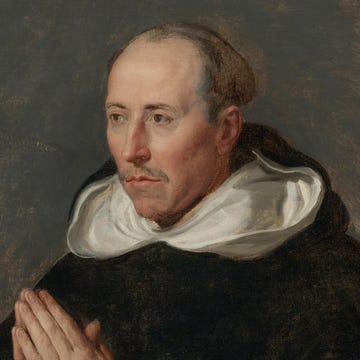(1304-1374)
Who Was Petrarch?
Petrarch was a devoted classical scholar who is considered the "Father of Humanism," a philosophy that helped spark the Renaissance. Petrarch's writing includes well-known odes to Laura, his idealized love. His writing was also used to shape the modern Italian language.
Early Life
Francesco Petrarca, whose anglicized name is Petrarch, was born on July 20, 1304, in Arezzo, Tuscany (now Italy). With his family, he moved to Avignon, France, as a child. In France, Petrarch studied law, as his father had wished. However, his passion was for literature, particularly that of ancient Greece and Rome. After his father's death in 1326, Petrarch left law to focus on the classics.
Classics and Humanism
Petrarch became a cleric, making him eligible for ecclesiastical postings, which supported him as he pursued his interest in ancient literature. Traveling as a diplomatic envoy for the Church, he was also able to search for forgotten classical texts. Throughout his lifetime, Petrarch amassed an impressive collection of such texts, which he later bequeathed to Venice in exchange for a house, refuge from the plague.
As Petrarch learned more about the classical period, he began to venerate that era and rail against the limitations of his own time. Though he felt that he lived "amid varied and confusing storms," Petrarch believed that humanity could once more reach the heights of past accomplishments. The doctrine he espoused became known as humanism, and formed a bridge from the Middle Ages to the Renaissance.
Petrarch's Writing
Petrarch's other passion was writing. His first pieces were poems that he composed after the death of his mother. He would go on to write sonnets, letters, histories and more. Petrarch's writing was greatly admired during his lifetime, and he was crowned Rome's poet laureate in 1341. The work Petrarch held in highest regard was his Latin composition Africa, an epic poem about the Second Punic War. His vernacular poems achieved greater renown, however, and would later be used to help create the modern Italian language.
Petrarch's most well-known vernacular compositions were lyrical poems about Laura, a woman he had fallen in unrequited love with after seeing her in an Avignon church on April 6, 1327. Petrarch wrote about Laura—whose true identity has never been verified — for most of his life, even after she died during the Black Death of 1348. When he collected 366 of his vernacular poems in his Rerum vulgarium fragment — also known as Rime Sparse ("Scattered Rhymes") and as Petrarch's canzoniere ("Petrarch's songbook") — his love for Laura was one of the main themes. The collection also contains 317 sonnets; Petrarch was an early practitioner of the form and helped to popularize it.
Death and Legacy
Petrarch passed away just before his 70th birthday, in Arquà (near Padua), Carrara, which is now part of Italy. After retiring to work in his study on July 18, 1374, Petrarch died during the night. His body was discovered the following morning.
As one of the world's first classical scholars, Petrarch unearthed vast stores of knowledge in the lost texts he discovered, while his philosophy of humanism helped foment the intellectual growth and accomplishments of the Renaissance. Petrarch's legacy also includes his poems, sonnets and other writing. His vernacular writing was immortalized when it was used — alongside the works of Dante Alighieri and Giovanni Boccaccio — as the foundation for the modern Italian language.
QUICK FACTS
- Name: Petrarch
- Birth Year: 1304
- Birth date: July 20, 1304
- Birth City: Arezzo, Tuscany (now part of Italy)
- Birth Country: Italy
- Gender: Male
- Best Known For: Petrarch was a poet and scholar whose humanist philosophy set the stage for the Renaissance. He is also considered one of the fathers of the modern Italian language.
- Industries
- Fiction and Poetry
- Art
- Astrological Sign: Cancer
- Nacionalities
- Italian
- Death Year: 1374
- Death date: July 19, 1374
- Death City: Arquà (near Padua), Carrara (now part of Italy)
- Death Country: Italy
Fact Check
We strive for accuracy and fairness. If you see something that doesn't look right, contact us!
QUOTES
- [T]here was a time, there was an age, that was happier for poets, an age when they were held in the highest honor, first in Greece and then in Italy, and especially when Caesar Augustus held imperial sway, under whom there flourished excellent poets: Virgil, Varius, Ovid, Horace, and many others.
- My anger has very often injured myself, but never others.
- It is possible that some word of me may have come to you, though even this is doubtful, since an insignificant and obscure name will scarcely penetrate far in either time or space.
- How will posterity believe that there has been a time when without the lightnings of heaven or the fires of earth, without wars or other visible slaughter, not this or that part of the earth, but well-nigh the whole globe, has remained without inhabitants.
- A short cut to riches is to subtract from our desires.
- To begin with myself, then, the utterances of men concerning me will differ widely, since in passing judgment almost everyone is influenced not so much by truth as by preference, and good and evil report alike know no bounds.
- My fate is to live amid varied and confusing storms. But for you perhaps, if as I hope and wish you will live long after me, there will follow a better age. This sleep of forgetfulness will not last for ever. When the darkness has been dispersed, our descendants can come again in the former pure radiance.
- I couldn't face making a merchandise of my mind.




